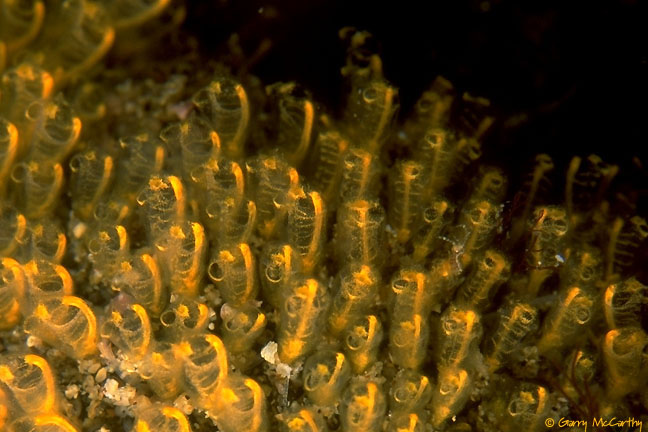
Social Tunicates
Pycnoclavella stanleyi
On the evolutionary scale, tunicates are closer to man
than almost any other marine invertebrate.
They possess a brain, a skeletal rod which supports a nerve
chord (much like our backbone) and all of the organ
systems of higher vertebrates except specialized sensory
organs (such as eyes).
Tunicates are filter-feeders, and typically have siphons
to suck water into, then push it out of, their bodies.
There are about 90 different types of tunicates on the west coast,
ranging from small aggregating types (as shown here)
to large, individuals which can grow to 6 inches (150 mm) or more.
These are tiny, as evidenced by the grains of sand
in the lower left.



